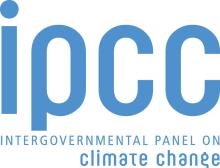Resource information
This IPCC technical paper extensively and thoroughly examines the potential consequences of climate change on the world’s freshwater resources and the communities that depend on them. Its objective is to improve understanding of how water-related issues are linked to climate change and adaptation and mitigation responses. The methodology splits sections into observed and projected effects with error margins and a stress on uncertainty presented as necessary context. The paper explains the influences of hydrological changes on climate, as well as outlining the observed and projected effects of climate change as related to all of the following:
precipitation
snow and land ice
sea Level (where it impacts freshwater supplies)
evapotranspiration
soil moisture
runoff and river discharge
patterns of large-scale variability
One section focuses on the link between climate change and water resources, taking into account non-climatic changes that are likely to exacerbate problems (such as increased freshwater demand due to population growth and development). A lack of data hampers efforts to quantify impacts of climate-related changes to water resources, though it is considered ‘highly likely’ that efforts at sustainable development will be negatively impacted. The authors breakdown, by sector, observations and projections of climate-related impacts, together with potential vulnerabilities and suggested adaptive strategies. Sectors analysed include agriculture, health, water supply, settlements, economy and biodiversity. A range of climate change mitigation measures are discussed, mainly covering renewable energy sectors (i.e. bio-energy, hydropower, geothermal), land-use and water management strategies. Potential conflicts between mitigation and adaptation are also raised that, while marginal on a global scale, can nevertheless have significant impacts at the regional level, (i.e. trade-offs between water supply and hydropower or flood control). Implications for future policy are detailed in depth, both by sector and region, as well as the implications for mitigation and sustainable development. Risks are presented probabilistically (i.e. likely, highly likely, etc.) to best reflect present uncertainties; even so the paper finds numerous significant challenges worthy of concern, and stresses the increased vulnerability of those already at risk. The authors recommend for more extensive research to plug knowledge gaps, including the need for further refining of modelling data and spatial resolution.



